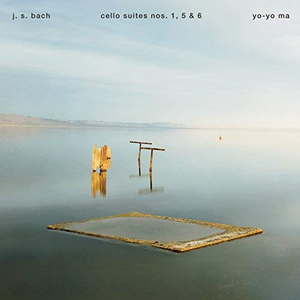
Unaccompanied Cello Suite No. 1 In G Major, BWV 1007: Sarabande
Yo-Yo Ma is a world-famous Chinese-French-American cellist. He is considere… Read Full Bio ↴Yo-Yo Ma is a world-famous Chinese-French-American cellist. He is considered one of the best cellists in the world and has made over 50 albums.
Ma was born to Chinese parents living in Paris. He began to study the cello with his father at age 4 and soon came with his family to New York, where he spent most of his formative years. Later, his principal teacher was Leonard Rose at the Juilliard School. He sought out a traditional liberal arts education to expand upon his conservatory training, graduating from Harvard University in 1976.
Yo-Yo Ma has been called "the most omnivorous of all cellists" by critics, and indeed possesses a far more eclectic repertoire than typical for a classical player. He has performed and recorded Baroque pieces on period instruments, American bluegrass music, traditional Chinese melodies, the Argentinian tangos of Astor Piazzolla, Brazilian music, soundtracks to Crouching Tiger Hidden Dragon and Philip Glass's Naqoyqatsi, in addition to numerous recordings of the standard classical repertoire. His latest CD is a collaboration with other musicians for the Memoirs of a Geisha soundtrack.
Yo-Yo Ma's main performance instrument is a very fine 1733 Montagnana cello. He also plays the Davidoff Stradivarius from 1712, which was also played by Jacqueline du Pre.
Ma was born to Chinese parents living in Paris. He began to study the cello with his father at age 4 and soon came with his family to New York, where he spent most of his formative years. Later, his principal teacher was Leonard Rose at the Juilliard School. He sought out a traditional liberal arts education to expand upon his conservatory training, graduating from Harvard University in 1976.
Yo-Yo Ma has been called "the most omnivorous of all cellists" by critics, and indeed possesses a far more eclectic repertoire than typical for a classical player. He has performed and recorded Baroque pieces on period instruments, American bluegrass music, traditional Chinese melodies, the Argentinian tangos of Astor Piazzolla, Brazilian music, soundtracks to Crouching Tiger Hidden Dragon and Philip Glass's Naqoyqatsi, in addition to numerous recordings of the standard classical repertoire. His latest CD is a collaboration with other musicians for the Memoirs of a Geisha soundtrack.
Yo-Yo Ma's main performance instrument is a very fine 1733 Montagnana cello. He also plays the Davidoff Stradivarius from 1712, which was also played by Jacqueline du Pre.
More Genres
No Artists Found
More Artists
Load All
No Albums Found
More Albums
Load All
No Tracks Found
Genre not found
Artist not found
Album not found
Search results not found
Song not found